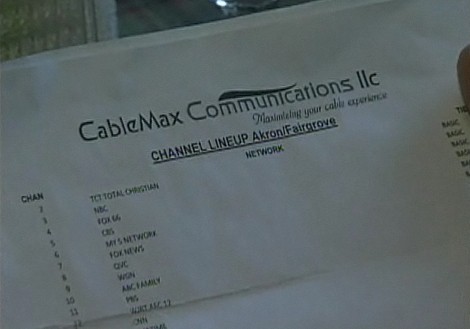In a remarkable statement to the Federal Communications Commission in Washington, AT&T has joined Verizon in predicting the imminent demise of Ma Bell’s classic telephone network.
AT&T writes in its 30 page comment, “That transition is underway already: with each passing day, more and more communications services migrate to broadband and Internet Protocol (IP)-based services, leaving the public switched telephone network (“PSTN”) and plain-old telephone service (“POTS”) as relics of a by-gone era.”
AT&T claims abandoning the old legacy phone network would help the company devote its full resources into staying relevant by constructing a broadband, IP-based network that would deliver voice, data, and video to consumers, presumably over its U-verse platform. That, according to AT&T, could help the company achieve universal broadband coverage in its service areas, but only if investment-friendly regulations are supported by Washington policymakers.
The Commission has been charged by Congress with formulating a National Broadband Plan that will result in broadband availability for 100% of the United States. That auspicious goal is within reach, but […] will not be met in a timely or efficient manner if providers are forced to continue to invest in and to maintain two networks. Broadband is dramatically changing the way Americans live, work, obtain health care, and interact with the government. Congress and the Commission have rightly made universal broadband access a core national priority. But achieving this goal will take an enormous investment of capital. Private investment from network operators has brought broadband access to over 90% of Americans, and these operators will continue to play a pivotal role in bringing broadband to the remaining 8-10% of citizens who do not currently have broadband access. It is accordingly crucial that the Commission pursue forward-looking regulatory policies that remove disincentives to private investment and encourage operators to extend broadband to unserved areas.
While broadband usage – and the importance of broadband to Americans’ lives – is growing every day, the business model for legacy phone services is in a death spiral. Revenues from POTS are plummeting as customers cut their landlines in favor of the convenience and advanced features of wireless and VoIP services. At the same time, due to the high fixed costs of providing POTS, every customer who abandons this service raises the average cost-per-line to serve the remaining customers. With an outdated product, falling revenues, and rising costs, the POTS business is unsustainable for the long run.
AT&T cites a growing number of Americans cutting their wired phone line service — 22% according to the National Center for Health Statistics. Craig Moffett from Bernstein Research pegs it closer to 25%, with an additional 700,000 phone lines being disconnected every month. With a shrinking customer base, the viability of companies providing only wired phone service has come into question. Verizon and AT&T, the nation’s largest phone companies, have made the judgment it’s a dying business. Conversely, Frontier Communications and a few other independent phone companies remain believers in rural copper wire phone networks, and are willing to buy the discarded, mostly rural regions their bigger counterparts can’t wait to exit.
But AT&T’s advocacy for an end to “plain old telephone service” is just a tad self-serving when one explores their “To-Do” list for Washington regulatory agencies and lawmakers. AT&T suggests their future plan benefits all Americans. Critics would contend it mostly benefits AT&T and its shareholders, especially in light of AT&T’s future revenues being directly impacted by customers disconnecting their AT&T phone lines. AT&T themselves note collective industry revenue for basic phone service fell from $178.6 billion in 2000 to $130.8 billion in 2007, a 27% decrease.
AT&T’s Action Plan to Avoid Obsolescence Explored
At the heart of AT&T’s proposal for 21st century telephone service is an end to analog telephone service, designed more than 100 years ago to carry voice calls, and the launch of broadband-based service to every home in their service area. From this new platform, AT&T can deliver telephone, television, and Internet service over a single network. In fact, they already do in several cities where AT&T’s U-verse has launched. Instead of getting one revenue stream from basic phone service, AT&T can now earn from any number of services a broadband platform can support.
AT&T compares their plan with the transition from analog to digital television, except you won’t have to trade in your existing phones or attach converter boxes to every telephone in the house. Just like the switch to digital television, AT&T wants a date certain to pull the plug on Ma Bell’s old phone network, the sooner the better.
But AT&T’s plan has plenty of strings attached.
First, the company believes the only path to private investment and a successful transition is a near-complete deregulation of the telephone industry. It wants the federal government, specifically the FCC, to take control of oversight of phone companies across America, if only to end a patchwork of state regulations and service requirements. Remember, the Ma Bell most Americans grew up with was a regulated monopoly. In return for guaranteed profits, phone companies agreed to meet service obligations, provide service to any home or business that wanted it, serve the disabled, and provide discounted phone service to the economically disadvantaged. Rural customers were assured they would have access to phone service and at reasonable prices, and if something stopped working, government oversight ensured problems would be repaired to the customer’s satisfaction.
In AT&T’s view, such requirements are quaint and outdated, and it wants to bear few of those burdens going forward. Indeed, in a too-cute-by-half aside, the company argues that since it will design the network to operate under the same protocol the unregulated Internet uses, it should be unregulated as well.
Such deregulation could impact a myriad of policies governing phone service that most Americans take for granted — minimum service standards, requirements that telephone companies complete calls between one another – even if competitors, and reasonably priced basic phone service even in the most remote locations. But AT&T is asking for even more – a comprehensive review and possible elimination of any regulation that could be interpreted as interfering with the transition to an all-broadband telephone network. AT&T includes everything but the kitchen sink in this category, ranging from service quality requirements, reporting, recordkeeping, data collection, accounting, and depreciation and amortization rules governing how quickly the company can write off obsolete equipment.
Ironically, AT&T wants deregulation -and- access to public taxpayer dollars to construct their new network. The company advocates government-funded award programs to promote universal broadband access. One would provide money for wired broadband service, perfect for companies like AT&T that want to build those networks, and another for wireless mobile projects to expand service into unserved or underserved areas, also perfect for AT&T Mobility — the same wireless carrier slammed by Verizon Wireless for largely ignoring rural America with 3G wireless data upgrades.
While there is some justification for a review of federal and state rules that may no longer realistically apply to today’s telecommunications marketplace, AT&T goes out of its way to be self-serving in its recommendations. It dangles the bright and shiny object of a 21st century broadband-based telephone network, but only if they get to run it essentially “no questions asked,” with little oversight and an infusion of public taxpayer dollars to compliment private investment.
AT&T may be correct that the days for Ma Bell’s “plain old telephone service” are indeed numbered. But for a company that earns billions in profits and answers to shareholders demanding maximum return, shouldn’t their long term well-being first be a question between AT&T management and shareholders? Are they incapable of a private course correction that makes their future relevance more secure? AT&T’s U-verse did not require public tax dollars to be successful, and the company spent generously on lobbyists and astroturf campaigns to smooth the way forward with “statewide franchising,” bypassing local government oversight.
The real question on the table is how far does the Obama Administration and the FCC want to go to achieve universal broadband? AT&T suggests that only massive deregulation will entice private investors to step up and make the investments required to help achieve whatever definition of “universal broadband” the Commission comes up with. But that price is way too high to pay. AT&T answers first and always to its shareholders. If they want public tax dollars funding, even in part, their transition to an all-broadband future, they must also answer to the other “stockholders,” namely the American people helping to foot the bill.


 Subscribe
Subscribe








